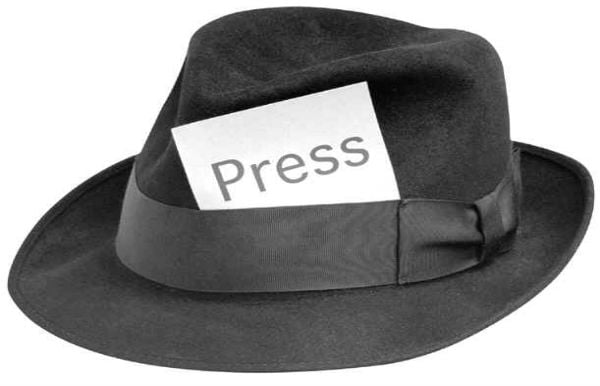Let’s begin this article with a mental experience: let’s try to imagine the field of Armenian media and see how many journalists we know not as friends or as acquaintances, but as a public person. (Try, for purposes of purity, to remove television and radio — it’s difficult not to know journalists here. Of course we’ll say well there’s nothing left, but I would say it’s the main part that’s left, since perhaps the press that’s centuries old and passed on from hand to hand remains that which dictates journalism.) If you, my dear reader, are not one who is close to journalism, then you’ll recall only a few names, a few faces. And, most likely, these faces will comprise a much smaller group than the overall number of news outlets which you might recall without any effort.
And let me say, my patient reader, the problem is not you. Actually, in Armenia journalists did not become a class of people; strengthened in the field of information were news outlets and their editors, but not journalists, who were deprived of a face for years. In fact, the majority of journalists in Armenia are unknown and nameless, though their names are often listed below articles.
This issue has a few layers. Let’s not speak of the low quality of journalism: everyone has already complained to the universe, their relatives and their neighbors on this subject. Moving forward. From the start of the Karabakh movement until the first few years of Armenia’s independence, news media was a public platform where social and political journalism flourished — people from different spheres wrote various articles. Journalists were pushed into the competitive arena, where a long public debate was taking place. This, in some sense, is the idealistic image of the near past, but it’s clear that today the situation has changed: public figures practically don’t write — in the best case scenario, they give only press conferences or interviews; in the worst case, they write open letters. And journalists become, on the basis of these remarks, paraphrasers in the best case scenario; essay writers in the worst case. The unbearable quantity of press conferences is already somewhat of a symptom.
The other fact is the unique competition among news agencies. The print press has been divided; it’s become closed in partisan, narrow group cells — a large part of what’s published is highly predictable and emotional. Naturally, there isn’t really an issue of seriously competing with the opposing camp since the readers are different; and there isn’t particularly a problem of competing in their own camp either. For editors it’s almost clear what has to be written on this or that topic, which is why it’s not that important who writes it. And this leads to an emergency stream of personnel, which deprives each individual journalist of his or her value and forces him or her to become a faceless writing instrument.
Isn’t it odd that news agencies don’t come forth with their journalists, don’t present their best people as part of their brand? Isn’t it odd that the columnist didn’t develop as a type (of journalist) in Armenia? Probably this was the reason that people at one time began to read bloggers, to cite them, love them and hate them. People have a desire for journalism with a face, journalism behind which stands a specific individual — that which is lacking in news outlets people replace with blogs.
Of course, the above-mentioned thoughts are at least slightly exaggerated, but only in presenting the bitter reality. And most importantly and optimistically, fortunately the Internet is changing this rapidly too: it’s thanks to the Internet that journalists have entered blogs and social networks, and now they are breaking this set reality with their efforts.
Samvel Martirosyan







